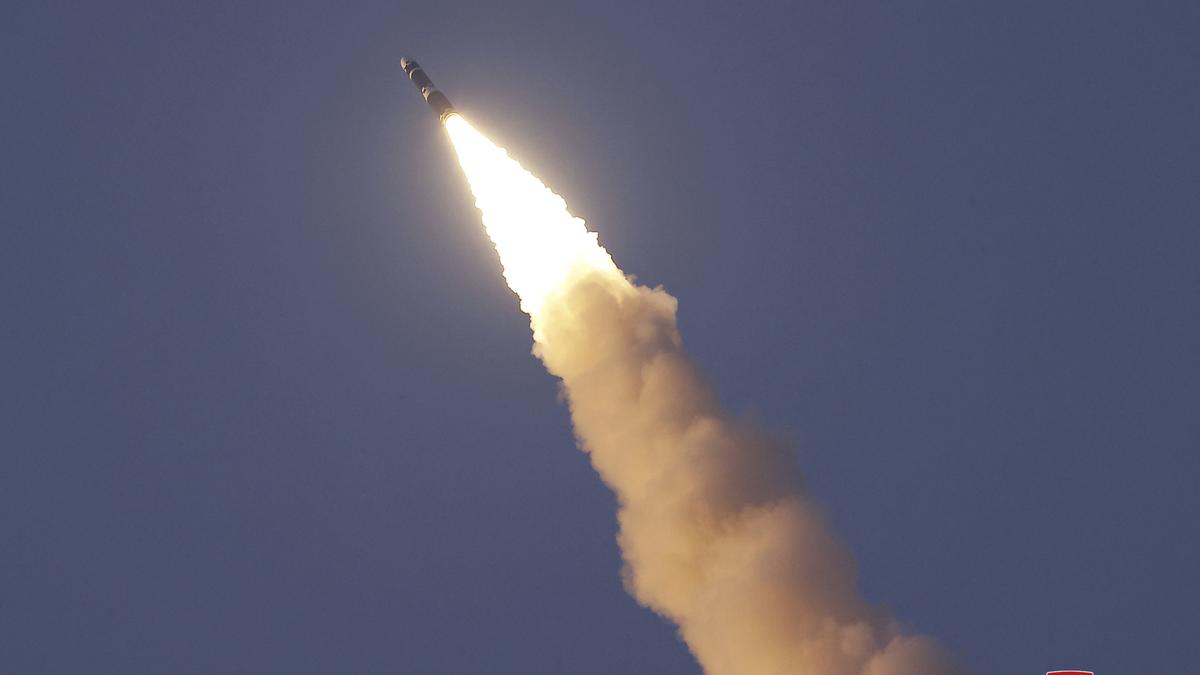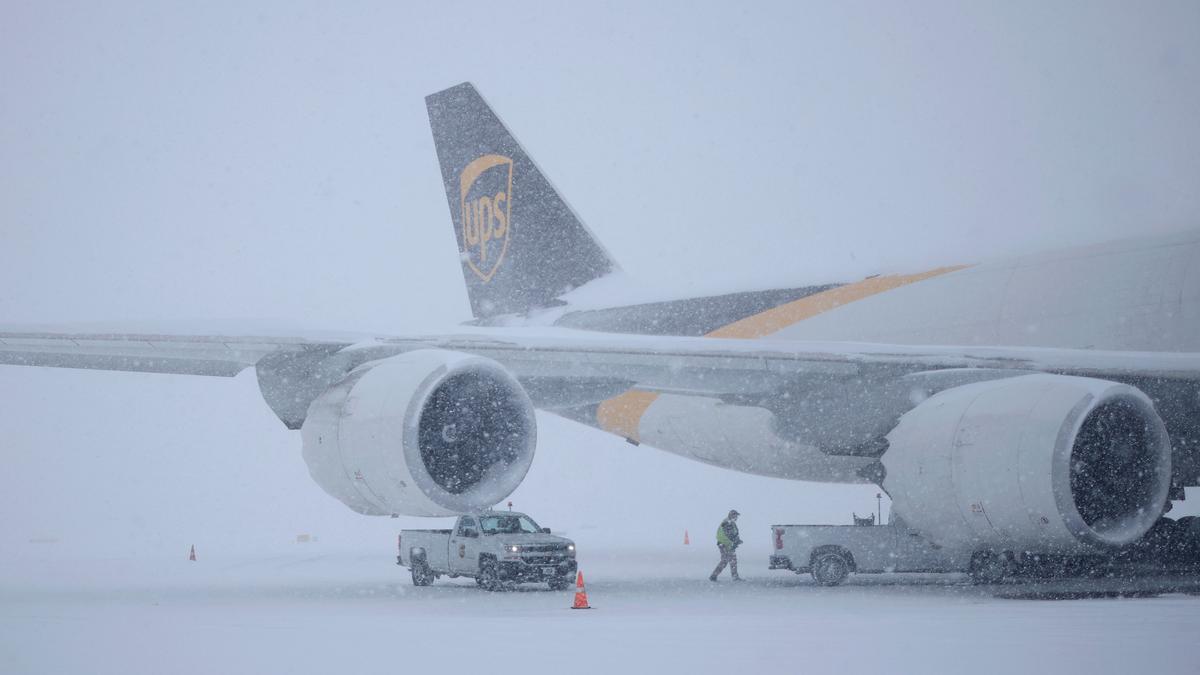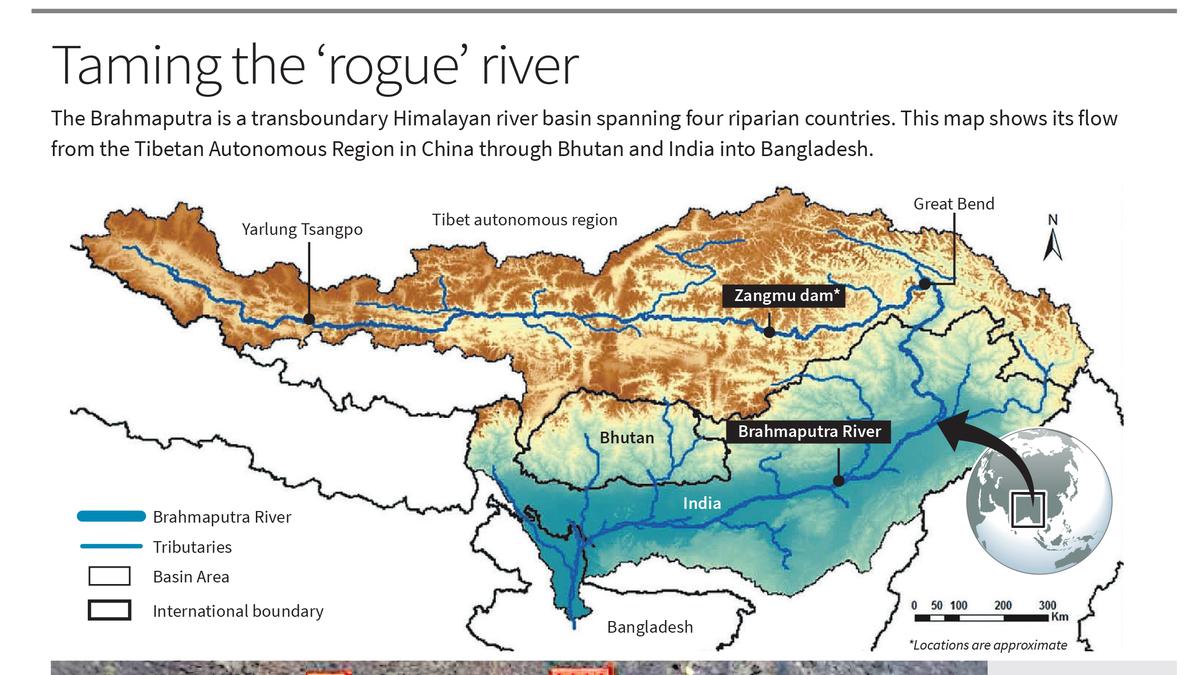Heavy fighting between Israeli troops and Palestinian militants on the outskirts of the southern Gaza city of Rafah has left crucial nearby aid crossings inaccessible and caused over 100,000 people to flee north, a United Nations official said Friday.
Israel’s plans for a full-scale invasion of Rafah appear to be on hold for now, with the United States deeply opposed and stepping up pressure by threatening to withhold arms. But even the more limited incursion launched earlier this week threatens to worsen Gaza’s humanitarian catastrophe.
Also read: Israel’s ‘limited’ military operation in Rafah | Explained
Heavy fighting was also underway in northern Gaza, where Hamas appeared to have once again regrouped in an area where Israel has already launched punishing assaults.

Over a million Palestinians have fled to Rafah to escape fighting elsewhere, with many packed into UN-run shelters or squalid tent camps. The city on the border with Egypt is also a crucial hub for bringing in food, medicine, fuel and other goods.
The UN’s Office for the Coordination of Humanitarian Affairs, known as OCHA, says about 110,000 people have fled Rafah and that food and fuel supplies in the city are critically low.
Georgios Petropoulos, an OCHA official working in Rafah, said the two main crossings near the city remain closed, cutting off supplies and preventing medical evacuations and the movement of humanitarian staff.
“Even if there were assurances to us being able to pass through a corridor, the proximity so close to a military involved in fighting is just not acceptable for something that has to be a humanitarian zone,” he said.
The UN’s World Food Programme will run out of food for distribution in southern Gaza by Saturday unless more aid arrives, Petropoulos said. He said about 30,000 people were leaving Rafah daily in search of safety, but that humanitarian workers had no supplies to help them set up camp in a new location.
“We simply have no tents, we have no blankets, no bedding, none of the items that you would expect a population on the move to be able to get from the humanitarian system,” he said.
Israeli troops captured the Gaza side of the Rafah crossing with Egypt on Tuesday, forcing it to shut down. Rafah was the main point of entry for fuel needed to power vehicles, as well as the generators on which hospitals and water treatment plants rely.
Israel says the nearby Kerem Shalom crossing — Gaza’s main cargo terminal — is open on its side, but the UN says it remains inaccessible on the Gaza side because of ongoing fighting.

Israeli troops are battling Palestinian militants in eastern Rafah, not far from the crossings. An Associated Press reporter in the city heard heavy artillery and gunfire throughout the night into Friday.
The military said in a statement that it had located several tunnels and eliminated militants “during close-quarters combat and with an aerial strike.” Hamas’ military wing said it carried out a complex attack in which it struck a house where Israeli troops had taken up position, an armored personnel carrier and soldiers operating on foot. There was no comment from the Israeli military, It is not possible to independently confirm battlefield accounts from either side.
Hamas also said it launched a number of mortar rounds at the Kerem Shalom crossing, close to where Israeli troops are operating. The military said it intercepted two launches. The crossing was initially closed after a Hamas rocket attack last weekend that killed four Israeli soldiers.
Israel says Rafah is the last Hamas stronghold in Gaza and key to its goal of dismantling the group’s military and governing capabilities and returning scores of hostages captured in Hamas’ October 7 attack that triggered the war.
But Hamas has repeatedly regrouped, even in the hardest-hit parts of Gaza.
Heavy battles erupted this week in the Zeitoun area on the outskirts of Gaza City in the northern part of the territory. Northern Gaza was the first target of the ground offensive, and Israel said late last year that it had mostly dismantled Hamas there.
The north remains largely isolated by Israeli troops, and the UN says the estimated 300,000 people there are experiencing “full-blown famine.” Israeli Prime Minister Benjamin Netanyahu has vowed to proceed with the offensive with or without US arms, saying “we will fight with our fingernails” if needed in a defiant statement late Thursday. The Israeli military says it has what it needs for the missions it has planned, including in Rafah.
The war began with Hamas’ surprise attack into southern Israel last year, in which it killed some 1,200 people, mostly civilians, and took another 250 hostage. The militants are still holding some 100 captives and the remains of more than 30 after most of the rest were released during a cease-fire last year.
The war has killed over 34,800 Palestinians, mostly women and children, according to the Gaza Health Ministry, which does not distinguish between civilians and combatants in its figures. Israel’s offensive, waged with US-supplied munitions, has caused widespread devastation and forced some 80 per cent of Gaza’s population to flee their homes.
Israel’s surprise incursion into Rafah complicated what had been months of efforts by the US, Qatar and Egypt to broker a cease-fire and the release of hostages. Hamas this week said it had accepted an Egyptian-Qatari cease-fire proposal, but Israel says the plan does not meet its “core” demands. Several days of follow-up talks appeared to end inconclusively on Thursday.
Hamas has demanded guarantees for an end to the war and a full Israeli withdrawal from Gaza as part of any deal — steps Israel has ruled out.




